As the late night comics and cable screaming heads continue to mock and skewer the small percentage of undecided voters who will tip the balance in next week’s presidential election — How can someone be so stupid as to not be able to tell the difference between the two candidates? — I learned that one of the smartest people I’ve ever met is among this derided consitituency.
Ron Granieri is a graduate of Harvard College, earned his PhD in History from the University of Chicago, and has served as a professor at an Ivy League university. Moreover, as a precocious college student — who happened to be my roommate — Ron’s near photographic memory would enable him to beat me at Trivial Pursuit without ever allowing me a turn.
I’ve asked Ron to share with the RP Nation the path of a Reagan acoloyte who became frustrated with the far right turn of the GOP, only to be later disenchanted with the promise of the Obama Administration.
Because it will be voters like Ron who could ultimately determine our next President.
– The RP
= = = =
When The RP approached me the other day to ask me to join in the round table of “closing statements” for one candidate or another in the presidential election, it forced me to confront something I have tried to avoid for many months.
We have all seen the skits and made the jokes about undecided voters. Saturday Night Live mocked them for being ignorant. [Watch the video at the bottom of this post — in which an undecided voter asks whether French kissing could lead to pregnancy.] The brilliant Steven Colbert recently took it even further, comparing the elusive undecided voter to Jodie Foster’s epically (if unintentionally) hilarious backcountry wild child, Nell.
I have enjoyed a few chuckles at these images myself. But deep down I have been hiding a shameful secret: I am one of them.
I never thought it would come to this.
I have always been politically curious, going back to my childhood when I talked politics with my extremely political father. I can remember telling him I thought President Nixon should resign during the summer of 1974 (I was 7). By the time I was in high school in the early 1980s, I had become, following in the intellectual footsteps of my childhood idol, William F. Buckley, Jr., an enthusiastic conservative. My father, who admired Buckley in spite of rather than because of his ideology, was not completely happy about that, but he respected my positions, and we had some wonderfully spirited arguments. When the Georgetown School of Foreign Service application requested an essay outlining the one international problem I would most like to address in my future career, I wrote a perfervid essay on the need to combat international communism. No copy of the essay survives from that pre-word processing age, unless it is in a Georgetown archive somewhere, but I well remember being proud of calling communism “an international gangrene that threatens the health and safety of every society it touches.” I wonder what the folks at the Walsh School thought of it. I don’t know if it helped or not, but I did get in, even if I ended up going somewhere else.
In college I became one of the most visible conservatives on campus, editing Harvard’s monthly conservative student paper, the Salient. It culminated in my being featured in a full page of the graduation issue of the Crimson in 1989, as one of a handful of notable graduates of my class. That article, I discovered, is still available online, but when I think of it I think of the yellowing clipping that my mother framed and hung on the wall in what used to be my bedroom in Niagara Falls.
I had opinions on everything back then. Some of them I still hold; some I do not. A few of them make me shake my head in affectionate embarrassment for a young man who was awfully full of himself. Nevertheless, I had a pretty clear sense of where I stood on things; I voted in every election I could, and my votes followed those convictions. It was not always easy to be the most conservative person in the room (an experience that followed me from college to graduate school to at least the start of my academic career). But it worked well thanks to lots of good friends and plenty of mutual good will and respect for differences.

In 88, Ron supported Bush 41, but teen hooligans made him a sleeping billboard for the liberal Dukakis
Gradually, however, my sense of having a clear political home began to shift. Part of it was seven years living in the wonderful state of South Carolina, birthplace of both Steven Colbert and Strom Thurmond. In the final years of the last century and the early years of this one, I saw a Republican party that became increasingly focused on issues that did not appeal to me. On the local level I saw a rising tide of anti-intellectualism, anti-urbanism, and nativism. The national party displayed those traits as well, but mostly became fixated on slashing taxes, and too often responded to serious discussions about how to provide enough revenue for existing programs with vaguely neo-Confederate rhetoric about shrinking government disconnected from political reality. It was the party of the suburbs, of the Sun Belt and the Evangelicals. None of those traits much appealed to me, an Italian-Irish Catholic intellectual from a Rust Belt industrial town who prefers Alexander Hamilton to Thomas Jefferson and believes the Good Guys indisputably won The War of the Rebellion. The Cold War conservatism that I had embraced so closely, with its sense of national purpose, was dying out, and the new individualized Right was leaving me cold.
I remember well the moment when I really felt that things were slipping away. It was in spring 2000, on the eve of the South Carolina primary. I answered the phone and it was someone from the George W. Bush campaign team taking a poll. She was very pleasant, asked me if I had decided whether to vote for Bush or John McCain, and I admitted I was thinking it over. She then launched into a critique of McCain that trumpeted Bush’s plans for immediate tax cuts that would give the budget surplus back to the voters. I responded that I liked a lot of things about Governor Bush’s “compassionate conservatism,” which I took to mean conservatism based not simply on individualism but which included a sense of shared community responsibility. At the same time, I told her I did not really think that it made sense to rush to cut taxes when we still had a national debt in the trillions. (This was even before Afghanistan, Iraq, Medicare Part D and TARP, of course.)
An embarrassed pause followed. Then she curtly thanked me for my comments and hung up.
I should have taken that as a clear sign of where the Bush campaign stood and where my concerns fit into that agenda. But breaking up is hard to do. Even as I felt increasingly alienated from the GOP, it continued to get my votes. At least, that is, until 2008, when my frustration with the party and where it had led the country moved me to turn my back on them and vote for Barack Obama.
There, I said it. College friends may need a moment. I’ll wait. I recommend deep breaths.
Now however, I am adrift. I do not feel comfortable with the current GOP, even as I still consider myself conservative (of the more compassionate variety). I still enjoy and value strong and fruitful connections to conservative organizations. I believe in responsible budgets and a strong defense, and also in the importance of traditions and religious faith in building strong communities that respect life. I am grateful for the vigorous intellectual atmosphere and support provided by groups such as ISI, and have a deep respect and affection for my devout and well-meaning religious friends. I admire their steadfastness, envy their certainty, and am always glad to discuss and debate with them.
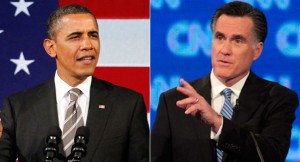 But that commitment to community also means that I see a strong need for a vigorous safety net, and respect for life to me means encouraging a culture that nurtures all life, and which celebrates love in all its forms. To my mind, it is most important that we love deeply and fully; less important is the question of whom we love. I am also deeply disturbed by the party’s positions on immigration, which deal in tropes that would have sounded much too familiar to Madison Grant. I believe that Mitt Romney is a better person than the Scrooge McDuck caricature presented by many Obama supporters, and I preferred him to the alternatives during the primary season. But I have no clear idea how he would govern, whether his tactical shifts in positions reflect deviousness or vacuity. Since his strategy, especially these past few weeks, has been to keep his plans murky, my enthusiasm for him has stayed well within bounds.
But that commitment to community also means that I see a strong need for a vigorous safety net, and respect for life to me means encouraging a culture that nurtures all life, and which celebrates love in all its forms. To my mind, it is most important that we love deeply and fully; less important is the question of whom we love. I am also deeply disturbed by the party’s positions on immigration, which deal in tropes that would have sounded much too familiar to Madison Grant. I believe that Mitt Romney is a better person than the Scrooge McDuck caricature presented by many Obama supporters, and I preferred him to the alternatives during the primary season. But I have no clear idea how he would govern, whether his tactical shifts in positions reflect deviousness or vacuity. Since his strategy, especially these past few weeks, has been to keep his plans murky, my enthusiasm for him has stayed well within bounds.
There is no true analogue to my jumble of political beliefs in this country at this time. I might have made a pretty good Federalist or Whig once upon a time, maybe a Rockefeller Republican. (Nelson Rockefeller was incidentally the only Republican my father, a lifelong civil servant in New York State, consistently supported.) But all those groups are long gone. I also know I do not fit in with any of the current third party options out there, which appear to me to be radical libertarians of the Right or Left. I think my positions correspond most directly to the politics of European Christian Democratic parties such as the German CDU/CSU, with their broad commitment to a tradition of Catholic social teachings, European integration, and the Social Market Economy, held together by a belief in the existence of and need to preserve Western Civilization. But I am an American, and intend to remain one, so Christian Democracy remains a subject to study but not a political home.
So, many of my more liberal friends will say, come on over to our side. We have candy, not to mention George Clooney and Eva Longoria. But the truth is that, while I do have liberal friends that I cherish and a liberal spouse that I love, I do not feel completely welcome among liberals. My time in academe left more than a few scars. Although I became increasingly reticent to take political positions among faculty colleagues, especially as my own positions changed over the years, I was struck many times by groupthink and doctrinal intolerance on the Left. Colleagues known and anonymous treated my work with condescension, if not hostility, for its focus on such retrograde things as dead white males, politics, and diplomacy, and dismissed my teaching success by claiming I pandered to apolitical or conservative students or simply traded on my white male privilege. Honest efforts to engage the work of people outside of my own specialties were rarely noted or respected, and more than one colleague, without actually knowing my own positions, has felt confident in conversations to make sweeping generalizations about conservative people and institutions that have struck me as unfair, and which they would never make about any other social or ethnic group. I know it’s not all about me, but it is hard to feel comfortable supporting folks that want you to vote with them, then shut up and go away.
Watching how one-party rule has led to stagnation and corruption in Philadelphia over the past nine years has also not helped increase my affection for the Democratic Party, much like watching one-party South Carolina made me question my place in the GOP.
I have also been less than impressed with the current campaign, in which the President and Vice President attack their opponents for their bad plans for entitlements, but leave the impression that the system needs no changes at all. I know they both know better, and feel insulted by their refusal to level with me, just as I think this President and his team wasted time and effort in fruitless tactical games when they controlled both houses of Congress. When given the chance to raise the debt ceiling, for example, they chose to put it off until after the midterm elections, a transparently insincere gambit to try and scoop up a few more votes by essentially voting “present” rather than taking a stand. That strategy worked when the President was building his resume to run for higher office. But in the end, his team still took a shellacking in 2010 and now faces an even less favorable legislative climate.
I give the President credit for advancing pieces of his agenda in the face of often-irrational hostility from Congress and the public. I certainly agree that it is not fair for the GOP to spend months with their collective foot on the brake, and then complain that the country is not moving forward. But I fear that a vote for Obama is a vote for four more years of just such gridlock, especially because I am not sure the President has any idea where he wants to go next, and has no real track record of being willing or able to cut deals with his opponents. His recent declarations of planning a new grand bargain ring hollow to me, since they appear to be based on a hope that Republicans will experience a spontaneous change of heart after November 6. That seems pretty unlikely, especially considering that the 2016 campaign will begin within a year of a second Obama inauguration. It is at least as likely that Mitt Romney, in a [cliché alert!] “Nixon goes to China” moment, actually embraces the moderation of his past and puts together a bipartisan coalition to deal with fiscal issues.
Please note, I consider both of those scenarios pretty unlikely. Which is why making a choice between them is difficult for me.
As an aside, this term has reinforced my belief that we should not be electing Presidents younger than 60. Our last three presidents were all under 55 when first elected, and each of them floundered in their first terms as they tried to deal with the political system. The Presidency should be the culmination of a career in public service, and reward those who know how to make things work, rather than placing excessive hopes on the magical powers of alleged outsiders. Simply put, we need more Lyndon Johnsons in the White House, and I don’t see one on offer this year. But that is a subject for another time.
So I am still wavering between two choices that have both their appeals and their drawbacks.
Libraries are full of stories of apostates who left their old beliefs behind and embraced the other side with the intensity of the convert. Some do it in existential sorrow, such as Whittaker Chambers, who described his break with communism in the Cold War classic Witness. Others do it with an angry muckraking glee that lends their work special piquancy, such as former conservatives David Brock or Michael Lind.
Often, such stories cheer those who share the new belief and inspire sarcastic dismissal in the abandoned. But I’m not one of those born-again true believers, and I certainly am not claiming any special kind of virtue because I am not clearly identified with one side or the other.
Recent politics have also had their share of self-aggrandizing politicians who claim to be moderate and proclaim a curse upon both houses, while obscuring their actual political backgrounds. (Yes, that means you, Jon Huntsman.) In Salon Alex Pareene recently lampooned “Our Terribly Confused Moderates,” such as Huntsman or my sometime kindred spirit David Brooks (a former campus leftist who turned right after college thanks to William F. Buckley and now is the house conservative at NPR), and Michael Bloomberg, who claim moderation but consistently support conservatives.
I make no such claims to superior virtue there either. Furthermore, I am not really a moderate. I am a conservative who holds some liberal views. Or am I a liberal who holds some conservative views? Is a zebra black with white stripes or white with black stripes?
Like all people, my views are the product of a combination of intellectual reflection, personal feelings, and experience. And an honest assessment of those factors leaves me, at this late date, still trying to decide how I will vote. As someone who has previously posted on this site his belief that all citizens should be open to changing their minds from election to election based on careful reflection rather than reflexive identification, I will say that this is not a bad thing in itself. But it does leave me feeling more than usually alone these days, bereft of the comfort that my old partisan certainty provided.
One anonymous blog post I read recently claimed that undecided voters were just “liars who crave attention.” I reject that categorization, but plead guilty to thinking that telling my story might have some value for others who are having difficulty placing themselves in the current political landscape. I welcome the chance to talk this over with them, and with my more committed friends of either stripe (many of whom are probably incredulous that I could actually be undecided at all), in the weeks leading up to this election and beyond.
Not knowing whom I will vote for is of course not necessarily the same as not knowing who I want to win. I want the country to win. I’m sure we can all agree on that.
====
Here’s the hilarious SNL skit Ron discusses in this piece:





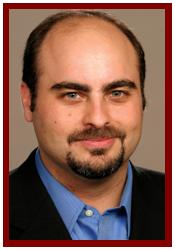
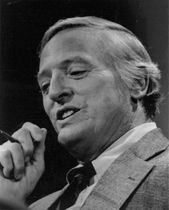
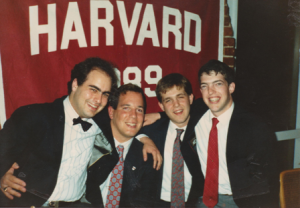
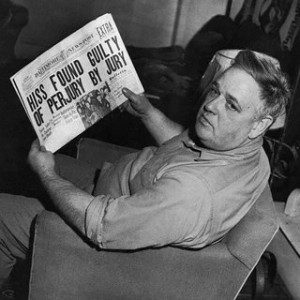




Leave a Reply